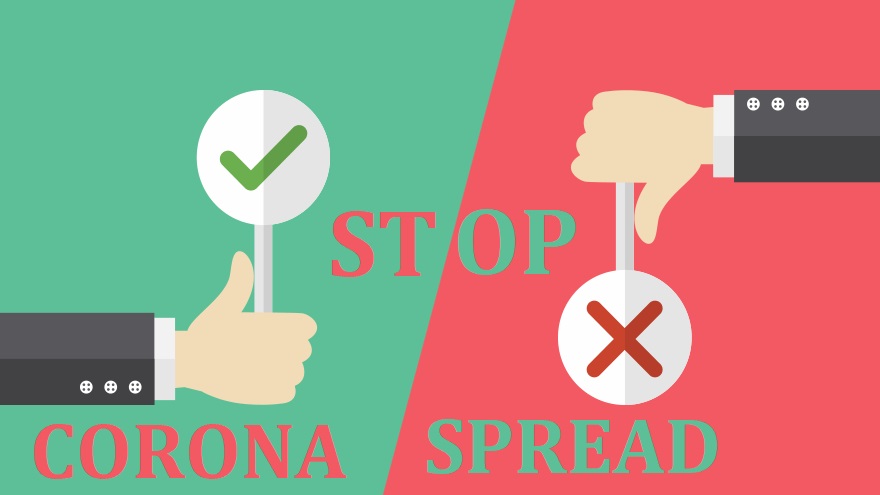Coronavirus disease (COVID-19) is a new virus causing infectious disease. The illness causes respiratory disease (such as flu) with symptoms like cough, nausea, and trouble breathing in more extreme cases. You should protect yourself by constantly washing your hands, avoiding touching your face and avoiding near contact (1 meter or 3 feet) with the unwell people.
How does it spread?
Coronavirus disease spreads mainly when they cough or sneeze, by contact with an infected person. This often spreads when a person touches a surface or item that has the virus on it and then touches his or her eyes, nose, or mouth.
On 30 January 2020, originating from China, the first case of the 2019–20 coronavirus pandemic was identified in India.
Symptoms of Coronavirus infection
- Fever • tiredness • Cough • Breathing trouble • Pneumonia and respiratory failure can also lead to death in serious cases.
Prevention:
You can protect yourself and help avoid the infection from spreading to others if you:
Do’s
- Wash your hands daily for 20 seconds, with soap and water or hand rubbing alcohol
- Cover your nose and mouth with a disposable tissue or flexed elbow when you cough or sneeze
- Avoid direct contact (1 metre or 3 feet) with others who are unwell Stay home and self-isolate from others in the house.
Don’t:
- Touch your eyes, nose, or mouth if your hands are not clean
- There’s currently no vaccine to prevent coronavirus disease (COVID-19).
Treatment:
There is no clear medicine for the prevention or treatment of coronavirus disease (COVID-19). People may need supportive care to help them breathe.
- Self-care
If the symptoms are mild, remain at home until you recover. You will minimize your symptoms if you:
- rest and sleep
- keep warm
- drink plenty of liquids
- use a room humidifier or take a hot shower to help ease a sore throat and cough
- Medical treatments
- If you develop a fever, cough, and have difficulty breathing, promptly seek medical care. Call in advance and tell your health provider of any recent travel or recent contact with travelers.
- Home quarantine
- Based on a mathematical modeling done by ICMR, it has been suggested that entry screening of travelers with symptoms suggestive of COVID-19 can delay the introduction of the virus into the community by three days to three weeks.
- Strictly implemented social distancing measures such as home quarantine of symptomatic patients and suspected cases will reduce the overall expected number of cases by 62% and the peak number of cases by 89%, thus flattening the curve and providing more opportunities for interventions.
- Maintaining Hygiene
- Social distancing by staying one meter away from any person with a cough or cold
- Wash hands and memorize the mnemonic SUMAN K (SeedhaUltaMutthiAnghutaNakhunKalai). Wash with 70% alcohol sanitizer or soap and water.
- Soap and water is preferable whenever available
- Disinfect surfaces regularly
- Use surgical masks if you have any symptoms. The general public does not need mask.
Preventive measures
- A patient with fever with dry cough should self-isolate whether he/she has breathlessness or not. Wear a mask, wash your hands regularly and consult your doctor over the phone.
- No testing is required for any infected persons relatives unless they develop symptoms.
- If a patient is found positive, it is important for the people he/she met to self-quarantine themselves as well on the approval of your doctor
Remember, corona is not flu. It’s a lung disease. A majority of patients have fever, 3/4ths have cough, half breathlessness with low white blood cell count and deranged liver enzymes. A runny nose only shows in 4 % of the cases.




Comment here